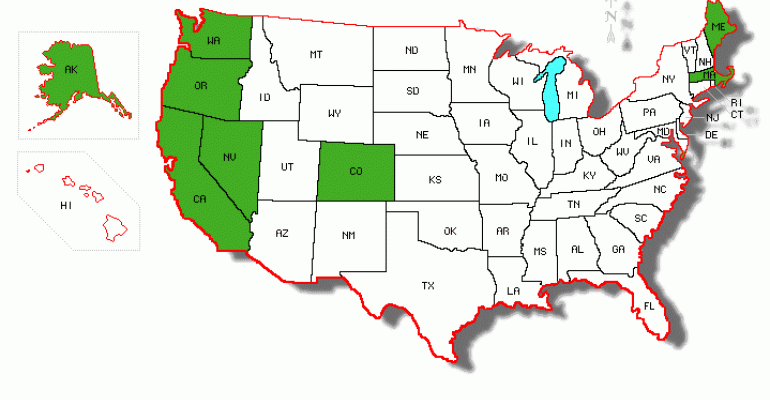The 2016 election added several states to the list of those that have legalized recreational marijuana use. In Colorado, Washington, Oregon, Alaska, California, Maine, Massachusetts, Nevada, and Washington, D.C., it is now legal for adults to purchase marijuana for recreational use, and several other states have decriminalized possession of the drug. If you’re meeting in one of these pot-friendly states, 2017 may be the year your attendees want a whiff. These simple measures can help you avoid a “bad trip.”

Just because possession is legal does not mean a person can use in public. Laws vary from state to state. Attorney Barbara Dunn O’Neal says, “A neutral way to clarify the rules is to provide a link to [local regulations] on your registration page.” The city of Boulder, Colo., for example, has a useful fact sheet detailing dos and don’ts.
2. Know before you go. Even if your event is not in the states listed above, some cities, including Orlando, Fla., and Philadelphia, Pa., have tweaked local ordinances concerning marijuana use, and some have decriminalized it.
3. Get into the weeds. For outdoor events ask venue management for details on smoking. Do they allow just cigarettes or cigars, pipes, or cannabis? A misunderstanding by one of your participants can get them into trouble and strain your relationship with the venue. Some hotels are 420 friendly, others are not. Dunn O’Neal points out that some event planners now ask attendees to respect the sensitivities of others by avoiding strong perfumes, so even if smoking is allowed, you might want to consider providing a special section downwind of the event to protect other guests.
4. Early release(s). Waivers and releases for conference activities may not change, but Dunn O’Neal cautions that they need to be signed knowingly, not while someone is under the influence. She suggests having participants sign well before the activity, such as at registration.
5. Beware of edibles! If you allow an attendee to share locally bought “special snacks” at your event you could also share the liability if someone gets sick. Also, make sure your team is aware that when marijuana is ingested instead of smoked, it can take hours for the effects to be felt, and by that time your attendee could be on a team-building zip lining outing.
6. Plan for pot. Dunn O’Neal says, “You have a plan for food poisoning, active shooters, and inappropriate behaviors, have a plan for dealing with people under the influence, no matter what the influence.”
7. Keep to the code. If you already have a code of conduct for your attendees, Dunn O’Neal suggests adding text stating your group expects that all attendees will follow local laws. Language concerning upholding an attendees’ own company standards of behavior might serve as a useful reminder, too. Tyra Hilliard, an event management expert and speaker, gives the example of a conference goer in Colorado who returned to his home state, failed a work drug test, and was fired.
8. Paying and Partaking. If your group decides to include a marijuana business as part of its conference, attorney Josh Grimes counsels that, “The business should have sufficient insurance, and indemnify the group against any liability.” Don’t assume you are covered. Selling the drug is still illegal at the federal level so insurance companies may be reluctant to be involved, as are banks. According to Rep. Perlmutter of Colorado, last year only 40 percent of marijuana businesses in the state had bank accounts, so discuss payment options to avoid carrying a suitcase full of cash to your meeting. If those hurdles are cleared, Grimes says, “The risks are similar to alcohol. Stop usage if an attendee becomes incapacitated in any material way.”





